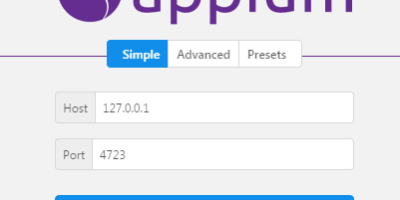

Import io.appium.java_client. Import io.appium.java_client.AppiumDriver For my case, I corrected this by specifying a new PATH environment variable in the AppiumServiceBuilder: Unfortunately, the way that AppiumDriverLocalService runs Appium, it does not re-use your defauly PATH and instead reverts to the system default. If you followed the installation instructions for XCUITest driver, Carthage is installed using Homebrew and it is automatically added to the PATH, so this isn't normally an issue. Test code can be written in many programming languages such as Java, Ruby, Python, PHP, C, and JavaScript. Now select the files you had extracted in step 4 and put in the lib folder under the app directory. Switch to the project view in Android studio. Store the paths in environment variables named NODE_PATH and APPIUM_PATH, and the AppiumServiceBuilder will pick them up automatically.Īnother issue I ran into is that the XCUITest driver requires the Carthage package manager to be in the system PATH. To initiate an automation test session, the client machine sends a request to the Appium server via the JSON wire protocol. Keep them separately in a file along with the Appium jar files. If you share your test code with a team and/or run in different CI environments, you can set this information via environment variables rather than hardcoding file paths in your test code. ServiceBuilder.withAppiumJS(new File("/path/to/appium")) I am using Appium version V1.15.0 and have already start the server successfully with the default Host: 0.0.0. Note: After installing the Appium Server, its shortcut icon is automatically placed on your desktop.

ingDriverExecutable(new File("/path/to/node/executable")) Open the Appium Server GUI app by clicking on its icon shortcut on your desktop. AppiumServiceBuilder serviceBuilder = new AppiumServiceBuilder()


 0 kommentar(er)
0 kommentar(er)
